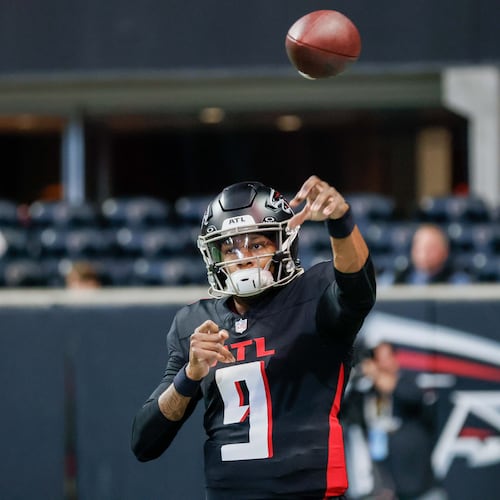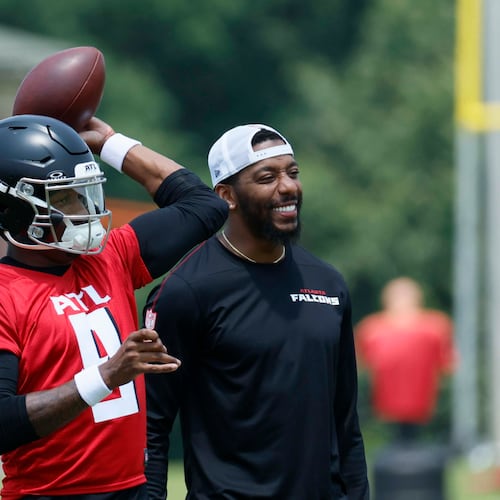The more than 300 players at the NFL scouting combine are running, jumping and contorting their bodies with the hopes of impressing one of the 32 teams.
If the player is successful, selected in the NFL draft and makes a team, his life will change automatically.
The player goes from scraping together money for pizza in the dormitory to looking at thousands and for some, millions of dollars.
While most have been preparing most of their life to play football, most don’t have the financial acumen to handle their newfound money.
Several of the players here went through a seminar at the Senior Bowl that was put on by Morgan Stanley’s Global Sports and Entertainment Group. After meeting with players from both teams, about 80 parents also met with financial executives.
The prospects have seen all of the stories about players making hundreds of millions of dollars only to later file for bankruptcy.
The executives tried to stress to the players the seven financial pitfalls that athletes in their position face and those are: spending beyond your means, underestimating taxes, pressure from family and friends, fraud or identity theft, trusting the wrong people, not saving for the future and risky investments or lack of protection against risk.
“The real key challenge here is that emerging and veteran athletes have very unique needs,” said John Vander Zee, Morgan Stanley’s managing director and chief operating officer of the Global Sports and Entertainment Group. “So, if you just try to treat them as somebody who just happens to have a lot of money, you’re going to miss the challenges that they are going to face and you’re not going to do the best job for them.”
During the seminar, which was built specifically for pro athletes, former NFL player Bart Scott and former NBA player Antoine Walker addressed the players.
“The players connected instantly to the storytelling,” Vander Zee said. “They were such relatable experiences. Bart and Antoine come at it from totally different perspectives.”
Scott was an undrafted player who played 11 seasons in the league. He always assumed that his next game could be his last. He’s an example of player who made smart money decisions and had a plan for his money.
“Watching some of my team mates and seeing what they were going through,” Scott said motivated him to get educated about his finances. “In some cases, I knew I didn’t want to become them.”
Scott told the players that he came up with a number that he could comfortably live on. Then he saved the rest. He didn’t rush out and buy a $200,000 Bentley, as did one recent third-round pick of the Falcons.
“He stayed disciplined all the way through,” Vander Zee said. “He had a plan. He saved enough money all the way through and that gave him a lot of options. We talk to kids about the power of saving.”
Walker was a high school sensation in Chicago and went on to play at Kentucky before starring in the NBA for 13 seasons. He made more than $100 million, but filed for bankruptcy in 2007. His net worth currently stands at $250,000, according to celebritynetworth.com.
Walker went through all of the seven pitfalls. He was trying to help too many people, lost perspective of his finances and didn’t have a plan.
He acted as if his money were endless and as if his career would go on forever.
“As quickly as the money was coming in, he was spending it,” Vander Zee said. “He over-leveraged and got into a whole bunch of things from casino debt to real estate.”
Scott’s and Walker’s stories resonated with the players.
“I felt that helped us out a lot,” Michigan State wide receiver Aaron Burbridge said. “Talking to guys like Antoine Walker. He had millions and ended up declaring bankruptcy. Just hear those guys talk was great. You need to know how to handle our money.
“It’s was very helpful. I know what to do and what not to do with my money.”
Cincinnati wide receiver Chris Moore believes he’s more aware of his finances, now.
“This is a process and you need to be smart with your money,” Moore said. “I got to talk to Antoine Walker, and he told us his story. To hear how he had all that money and just lost it all by spending it. I just took from it that you’ve got to be smart with your money. You have to be smart with what you do.”
Moore, who projects as a seventh-round draft pick, found the session worthwhile.
“I’m working on talking to a few financial advisors right now,” Moore said. “I’m narrowing it down and will pick one. We’re going to work on a plan to help me budget my money and make smart choices with it.”
Burbridge projects to be drafted in the third or fourth round. Last season, Falcons running back Tevin Coleman was a third-round pick and signed a three-year, $3.2 million deal. Falcons cornerback Akeem King was a seventh-round pick and made $520,000.
Mississippi State quarterback Dak Prescott also found the seminar helpful.
“We’re a bunch of guys coming from college who were struggling to get meals every day,” Prescott said. “Then to have that sudden change to thousands or millions in your pocket. … It was big to understand how we have to manage that and even learning how to deal with the family issues.”
Scott enjoyed participated in the program.
“The most impressive part was the parents session,” Scott said. “They were so engaged you could see their eyes and ears wide open. That was important because they are the ones guiding these guys on decision in life issues, but both sessions had a great impact on the athletes.”
About the Author
Keep Reading
The Latest
Featured



